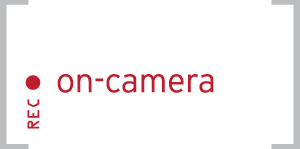The way most actors define success and failure is clear and absolute. Success seems to come only with the booking of a job, the finding of an agent, or a career-making opportunity. While, conversely, failure seems to come in so many different shapes and sizes: failure to get an agent, to get an audition, to book a job, and sometimes from booking a show (success) and then having your scene cut, or show cancelled, or character killed, etc. (failure).
This seems to create a feeling of constant failure. Either failure might happen, failure is happening, or failure has happened. Add an extremely narrow definition of success in our lives and careers, and that ends up erasing any sense of joy that acting might bring. It crushes hope, and actors easily begin to lose faith and confidence in themselves and can, eventually, quit.
I want to invite you to change all of that.
My wife and I have a young son who has only recently learned to walk and talk, and watching him has altered how I think about my own success and failure as an actor. He goes from stumble to stumble happily and without concern. Why? Because he is not focusing on his failures, he is focused only on getting better. Every time he falls, he doesn’t think to himself, “I was bad,” or “I’ll never learn to walk,” because he sees it for what it is: just a stumble and an opportunity to learn and get better.
Failure is part of any learning process. No one has ever performed any skill perfectly every single time without failure. It simply has never happened and never will happen. In order to become great we have to fail. For it is only by failing, and failing repeatedly, that we both learn and flex our creative muscles.
Many actors only focus on one thing and one thing only: getting cast. And yet, whether you book the job or not is outside of your control. There could be a hundred reasons why you did or didn’t get that job: too tall/too short, too big/too small, too blonde/not blonde enough. You may never know why you did or didn’t get a job, so instead of focusing there, focus on becoming the best actor (or simply auditioner) that you can be.
After you walk out of an audition, ask yourself, Did I do what I wanted to do to the best of my abilities? If you can say yes to that question, great. You have achieved success no matter whether they cast you or not. And if the answer is no, then identify what aspects didn’t go as planned and why. Once you have figured out the problem, now you can go about fixing it for the next time.
They may be minor changes like wardrobe or timeliness, or they could be major issues like your foundation training or on-camera skills. Either way, once you know what it is that you need work on, you can do something about it. And the next time you audition you’ll be even better than before. And that, my friends, is success. If you turn out a performance that meets (or even exceeds) your expectations, then you won’t care if you get that job. You’ll know that you impressed them, and however this particular audition goes, they will be calling again soon.
Like any other artist, we should be constantly assessing and striving to be the best that we can be. That is one of the beautiful things about the business that we have entered. There is no finish line, there is no final “success,” just the joy of getting to grow and improve as a human being and as an artist.
